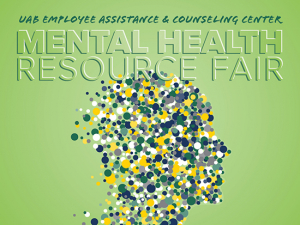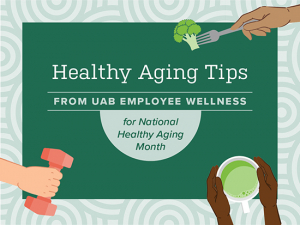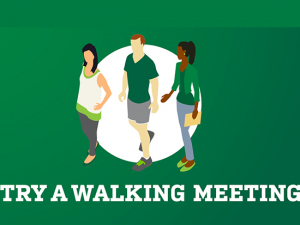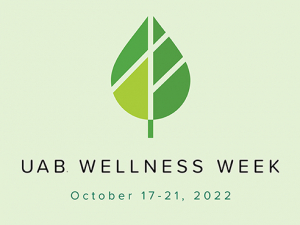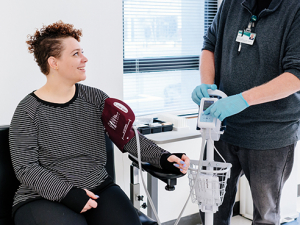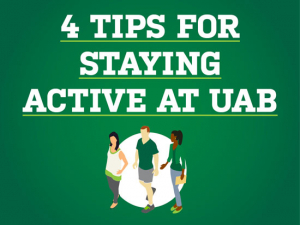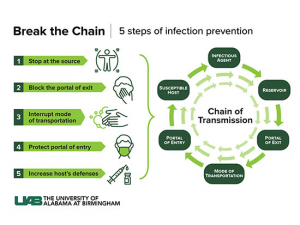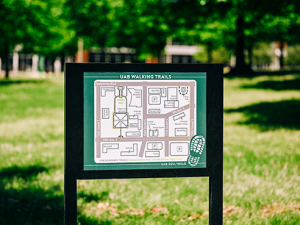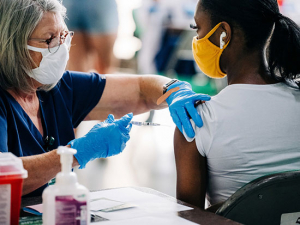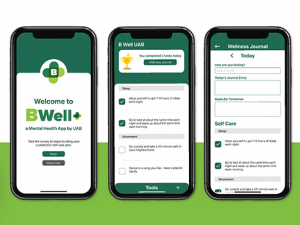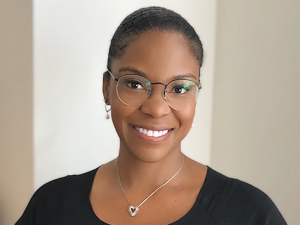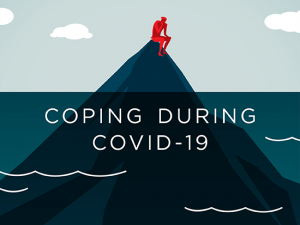 Stress and lack of time are the most common reasons that healthy changes fall apart. "Until you can remove some cognitive overload, you will find it hard to be successful at eating a healthy diet in the long term,” said Kathryn Kaiser, a health psychologist in the Department of Health Behavior.
Stress and lack of time are the most common reasons that healthy changes fall apart. "Until you can remove some cognitive overload, you will find it hard to be successful at eating a healthy diet in the long term,” said Kathryn Kaiser, a health psychologist in the Department of Health Behavior.
Kathryn Kaiser, Ph.D., has read thousands of obesity studies. She has yet to find a way to melt away weight with “one weird trick.”
“The average effect in many weight-loss studies using lifestyle interventions is generally in the two- to four-pound range, although there is wide variation,” said Kaiser, a health psychologist and assistant professor in the Department of Health Behavior in the School of Public Health. “You might get nine or 10 pounds with medications or more intensive lifestyle modification.”
 Kathryn Kaiser, Ph.D., health psychologist and assistant professor in the School of Public HealthYou wouldn’t learn that in the checkout aisle at the grocery store. “We’re looking at magazines that tell us we can lose 20 pounds in 20 days,” Kaiser said. “There’s a picture of some great-looking person and all we have to do is buy the magazine to find out their secret. The media know that our society is obsessed with miraculous, quick solutions, even though science has shown that slow, gradual and modest changes are the answer. Unsustainable behavior can keep people in an unhealthy pattern.”
Kathryn Kaiser, Ph.D., health psychologist and assistant professor in the School of Public HealthYou wouldn’t learn that in the checkout aisle at the grocery store. “We’re looking at magazines that tell us we can lose 20 pounds in 20 days,” Kaiser said. “There’s a picture of some great-looking person and all we have to do is buy the magazine to find out their secret. The media know that our society is obsessed with miraculous, quick solutions, even though science has shown that slow, gradual and modest changes are the answer. Unsustainable behavior can keep people in an unhealthy pattern.”
Welcome to the Hairball
Kaiser studies risk factors for weight gain and reasons for resistance to weight loss. On one wall of her office is a poster-sized graphic she calls the Hairball. It’s a map of everything suspected to play a role in the rise of obesity. In the center are the words “energy balance.” Surrounding them are dozens and dozens of boxes connected by a mass of intertwined arrows. “Perceived lack of time” points to “Tendency to graze.” So do “TV watching,” “Smoking-cessation” and “Food abundance.” “Level of infections” points to “Resting metabolic rate” and “Degree of primary appetite control,” which also receives arrows from “side-effects of drug use” and nine other factors, color-coded in categories that include social, biological, psychological, economic, media and medical.
“Everyone is not affected equally by these,” Kaiser said. “I can afford to buy good, healthy food, for example, although I may not choose to do that all the time.” Economics aren’t a contributing factor for Kaiser, but “convenience of food offerings” certainly matters to this busy researcher. That’s why she invested in a tiny fridge for her office, which she keeps stocked with a brand of sparkling water she likes and some healthy snacks, to keep her away from the vending machines out in the hall. “You want to make the healthy option the easy option,” she said.
Internal and external forces are pushing us all to expand our waistlines, Kaiser said. But we can overcome them by understanding what is happening and making smart choices that work in our own lives. Here’s how.

1. Your body doesn’t want to change — but it can
If you are overweight “you didn’t get that way all of a sudden,” Kaiser said. It took months and years to shape your current body and habits. “You’re going to have to work hard to set a new normal and keep that. You have to allow time to remodel your body.”
| If you are overweight “you didn’t get that way all of a sudden. You’re going to have to work hard to set a new normal and keep that. You have to allow time to remodel your body.” |
“Physiologically, we have a very elegant system that is designed to resist wide swings,” Kaiser said. “If you were able to drop pounds easily by skipping a few meals you wouldn’t survive the winter. Your body wants to keep everything in a narrow range that it defines as ‘normal’. This is homeostasis and the related concept in fat: lipostasis.”
If you go on a crash diet and stop eating, your metabolism will compensate by burning less of your energy stores. Dive into a sudden pattern of exercise and you will likely feel increased hunger as your body tries to maintain or gain back the energy stores it thinks it needs.
“We can’t go cold turkey on food,” Kaiser said. “In the health behavior realm, some of the most challenging aspects to change are fundamental physiological drivers, like food, sex and air. We can’t survive without breathing and we can’t survive without eating. We are hard-wired to pursue those to sustain ourselves.”
Overpowering these urges requires your brain’s frontal lobes — the seat of executive control. “Your brain is saying ‘feed me,’” Kaiser said, “and you have to have the cognitive restraint capacity to say ‘no’ or ‘not now.’”
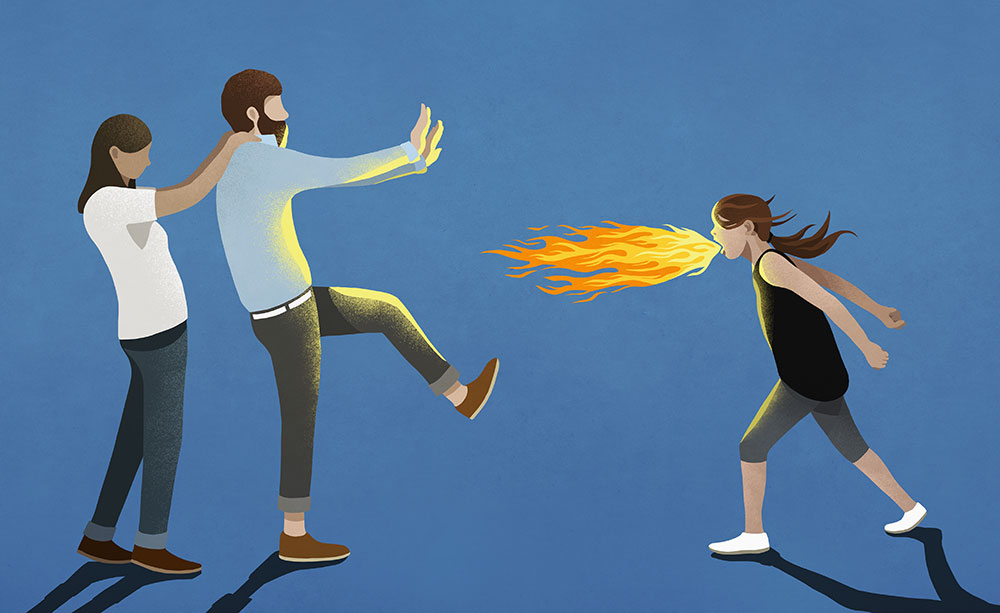
2. Act like an adult
“There’s an idea that your mind can behave like a child, a parent or an adult,” Kaiser said. “People who struggle have the argument between the parent and the child. The child says, ‘I don’t want to go to the gym!’ The parent says, ‘You have to go!’ And that takes a lot of energy. The adult, on the other hand, says ‘I will plan to go to the gym after work. I won’t ask the child, ‘Are you too tired?’ Because I know what the answer will be. Someone high in a concept called cognitive restraint can resist over-eating because they can, on average, win that argument. Someone with a weight problem may experience more trouble for many complex reasons.”
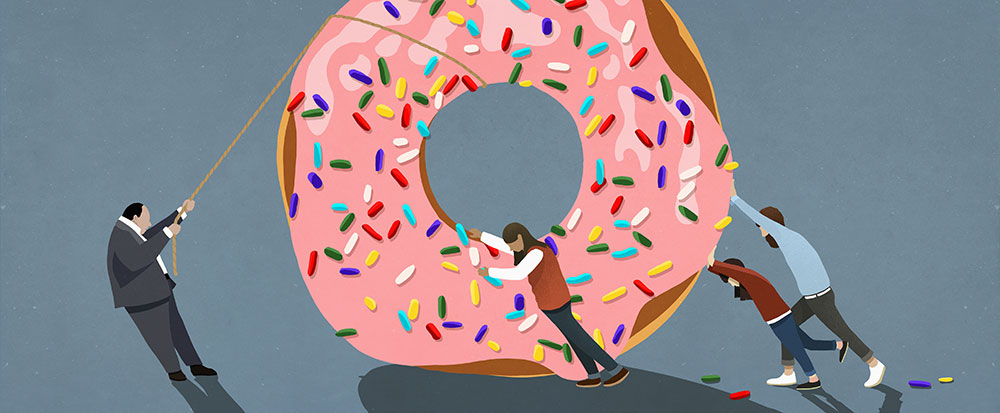
3. Think like a scientist
There are ways to tip the argument in your favor, though. “You can change your environment so you’re better able to win,” Kaiser said. “I generally don’t keep cookies or ice cream in the house, so I don’t have to have this argument with myself over whether I’m going to eat these things.”
This is probably not the first time that you’ve heard about the importance of a healthy lifestyle. “Hearing it and living it are two completely different things,” Kaiser said. “To change your lifestyle, you need a plan. It isn’t just going to happen. If you let nature take its course nothing will change. You need to choose the plan and the conditions and stick to them.”
| “Your brain is saying ‘feed me’ and you have to have the cognitive restraint capacity to say ‘no’ or ‘not now.’” |
Kaiser tells people they should “be your own scientist,” she said. “You know your lifestyle. You probably know what perhaps are the biggest contributing factors to weight gain. Take a realistic look at what you are doing and what you can change and then make small experiments. You don’t have to start by eating nothing but lettuce for lunch. Maybe you can bring a peanut butter sandwich on whole wheat from home rather than eating out, though. How do you make small changes in your lifestyle going forward?”
“Like many people, I am ‘carbohydrate sensitive’,” Kaiser said. “I take in carbs and store them well. I like biscuits but I have learned that they go directly to fat because I very efficiently store them. So I don’t eat them every day. That wasn’t easy in my home when I was young. Growing up in the South, rolls and biscuits are part of every meal for many families. I haven’t completely given them up. But I did this experiment in shifting my diet composition away from some carb sources and it helped a lot, so I stick with it.”
The goal is to look for “where there are barriers you can put between you and the unhealthy stuff, and where there are advantages you can increase,” Kaiser said. “If you live next door to a fast-food restaurant, there may be nothing you can do.” But if you are tempted by the drive-thru on your way home, “take a different route. Try new kinds of foods. Keep experimenting. Try everything; keep what works that can be sustained and ditch what doesn’t. The key is paying attention.”

4. Figure out what’s stressing you out
Stress and time are the most common reasons that healthy changes fall apart, Kaiser said. “Psychological stress impairs your frontal lobes,” she explained. “And that makes them unable to say, ‘We’re the executive center here, and we’re going to try to win the argument.’”
| “Psychological stress impairs your frontal lobes,” she explained. “And that makes them unable to say, ‘We’re the executive center here, and we’re going to try to win the argument.’” |
Pleasurable foods — ones high in fat, sugar or both — “bring immediate stress relief” for some people, Kaiser said. “You get an immediate dopamine release. It is cheap and available 24 hours a day. If you know from past experience that food will bring relief, and you need to get on with your day, you may say, ‘I’ll eat a whole box of my favorite cereal.’”
But just like an addictive drug, “you need increasingly higher doses to get the same effect,” Kaiser said. “I was interviewing a patient who liked to eat Twizzlers. They would make her feel better. Eventually, she was eating an entire canister every day probably as a form of self-medication.”
So, what’s stressing you out? “Is your job killing you?” Kaiser said. “That’s the case for some people. Maybe it is other responsibilities. Until you can remove some cognitive overload, you will find it hard to be successful at eating a healthy diet in the long term.”
Exercise is one way to address the need for stress relief instead of unhealthy eating. If the issue is clinical depression or anxiety, doctors can prescribe treatments. “Some people have a mental block about medication, but food can be a drug, too,” Kaiser said.

5. Running is not your only option
Physical activity has to be a part of any long-term plan. “If you reduce overall energy intake without maintaining enough physical activity, your body will compensate by having your metabolism plummet,” Kaiser said. “You’ll be hungry, but you won’t be losing weight.”
| “Ask yourself, ‘What do I find enjoyable?’ and then do that. If you hate running, don’t put yourself through that." |
Exercise is essential, but it doesn’t need to be painful. “Ask yourself, ‘What do I find enjoyable?’ and then do that,” Kaiser said. “If you hate running, don’t put yourself through that. If you would rather run while chasing a ball, try tennis or racquetball. Choose an activity that gives you something back.” Don’t worry if you never experience a “runner’s high,” either. “I feel better after I exercise, but there is a genetic mutation that prevents some people from releasing dopamine when they work out,” Kaiser said. “If you stick with it, though, you will feel different in the long run. You don’t have to do something that hurts. Try yoga and focus on your breathing. Just don’t stop trying.”
Whether exercise is enjoyable or not, increased energy expenditure is important to remove extra weight and establish a new normal for your body. “Good diet, regular exercise and adequate sleep — your brain really needs those three things in order to keep the frontal lobes functioning at their best,” Kaiser said.
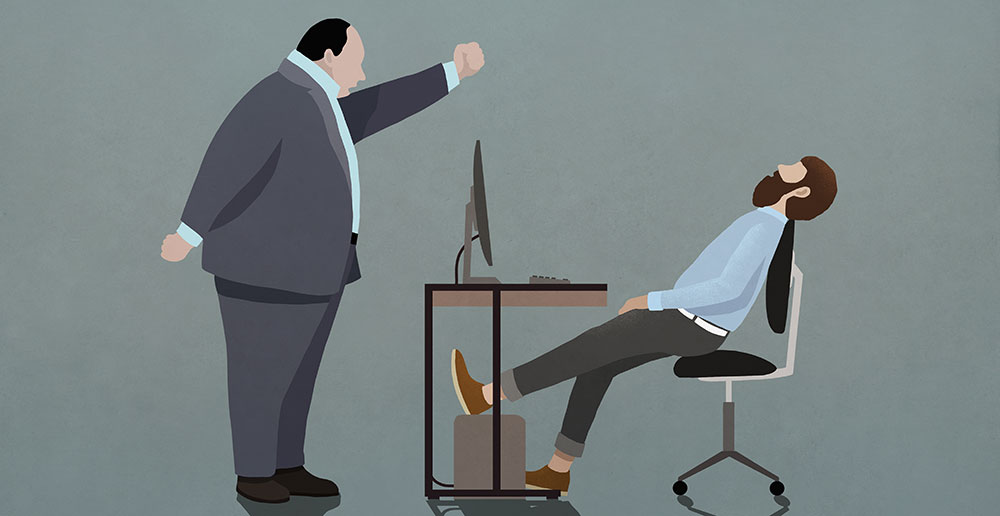
6. Yes, sleep is important
“The brain burns a lot of energy for its size,” Kaiser said. “That metabolic trash needs to be taken out over night. Sleep allows the cells to turn down the burners and recharge. After a full night of rest, when you ‘boot up’ in the morning you are ready to go.”
Lack of sleep brings brain impairment. “People say, ‘I don’t have enough time to sleep,’ but something has to give,” Kaiser said. “Once you experience what regular sleep, a healthy diet and regular activity does for your brain, your eyes will be opened. If you have a healthy, rested brain, so much of life gets better.”
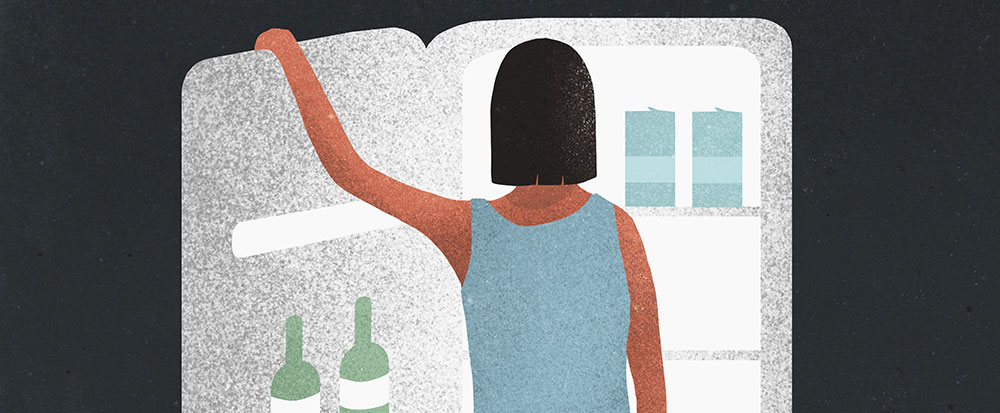
7. Accept imperfection
Overeating is not like a drug addiction, “where one slip is devastating,” Kaiser said. “You have to recognize that you’ll occasionally fall off the wagon. When that happens, you can’t quit. You just get back to your plan.”




